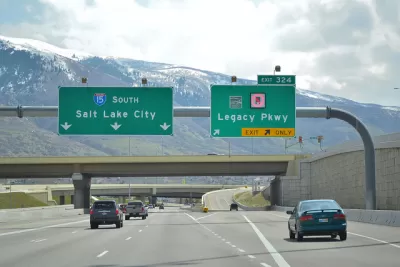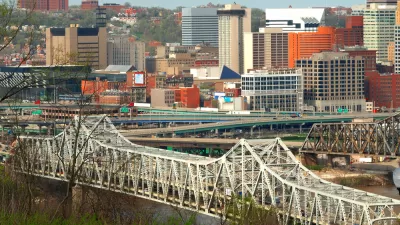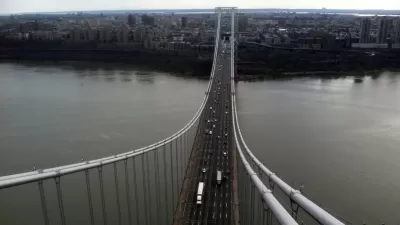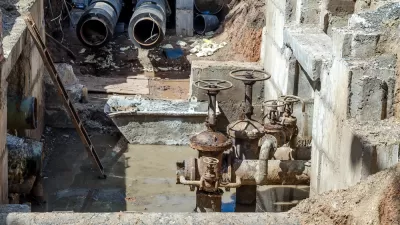Despite alarming claims about the nation's roads and bridges, a column in the Chicago Tribune argues that the administration's proposed infrastructure spending doesn't match actual needs.

Writing in the Chicago Tribune, Steve Chapman argues that the United States doesn't actually need President Biden's "infrastructure binge." Biden "made gaudy promises to 'transform' our transportation networks, 'revolutionize' railroads and urban transit, and upgrade water systems, broadband, bike lanes, home weatherization and just about anything else you could think of," according to Chapman, writing before reports of the Biden administration developing a $3 trillion infrastructure plan broke.
Yet reports from the Reason Foundation and the Milken Institute Review show less-than-alarming numbers when it comes to the country's roads and bridges. The Reason Foundation's Annual Highway Report found that "the percentage of urban interstates rated in poor condition was lower in 2018 than a decade earlier," and, according to Brown University economist Matthew A. Turner, "investment in the interstate, in bridges and in public transit buses has matched or exceeded depreciation over the past generation."
Chapman argues that it should be up to states and localities to fund the infrastructure projects that affect them. "The great majority of infrastructure assets are owned by state and local governments, and it’s their constituents who would gain the most from resurfacing roads or bolstering bridges," he writes. "If they are going to reap the economic benefits of such investments, shouldn’t they be willing to pay for them?"
Others contend that many major infrastructure projects require federal oversight and funding, and that federally funded projects create well-paying, long-term jobs and economic opportunity. An October 2019 report from the House Budget Committee states that "federal support is especially important for larger-scale projects that affect multiple jurisdictions, require a broader source of revenues than is available to local communities, or create or sustain public goods that should be widely available to all."
FULL STORY: We don't need Biden's infrastructure binge

Alabama: Trump Terminates Settlements for Black Communities Harmed By Raw Sewage
Trump deemed the landmark civil rights agreement “illegal DEI and environmental justice policy.”

Study: Maui’s Plan to Convert Vacation Rentals to Long-Term Housing Could Cause Nearly $1 Billion Economic Loss
The plan would reduce visitor accommodation by 25% resulting in 1,900 jobs lost.

Why Should We Subsidize Public Transportation?
Many public transit agencies face financial stress due to rising costs, declining fare revenue, and declining subsidies. Transit advocates must provide a strong business case for increasing public transit funding.

Paris Bike Boom Leads to Steep Drop in Air Pollution
The French city’s air quality has improved dramatically in the past 20 years, coinciding with a growth in cycling.

Why Housing Costs More to Build in California Than in Texas
Hard costs like labor and materials combined with ‘soft’ costs such as permitting make building in the San Francisco Bay Area almost three times as costly as in Texas cities.

San Diego County Sees a Rise in Urban Coyotes
San Diego County experiences a rise in urban coyotes, as sightings become prevalent throughout its urban neighbourhoods and surrounding areas.
Urban Design for Planners 1: Software Tools
This six-course series explores essential urban design concepts using open source software and equips planners with the tools they need to participate fully in the urban design process.
Planning for Universal Design
Learn the tools for implementing Universal Design in planning regulations.
Smith Gee Studio
Alamo Area Metropolitan Planning Organization
City of Santa Clarita
Institute for Housing and Urban Development Studies (IHS)
City of Grandview
Harvard GSD Executive Education
Toledo-Lucas County Plan Commissions
Salt Lake City
NYU Wagner Graduate School of Public Service





























